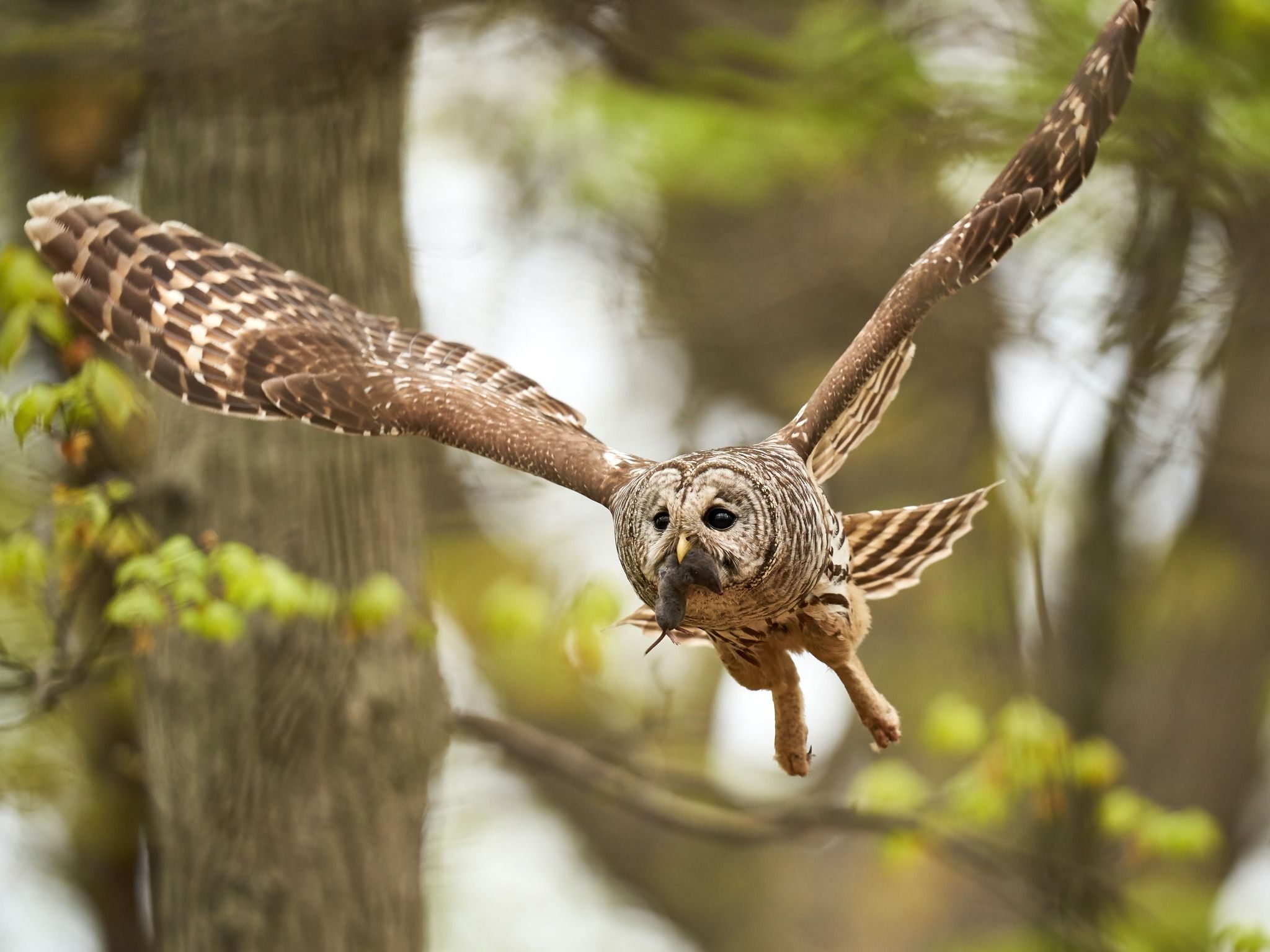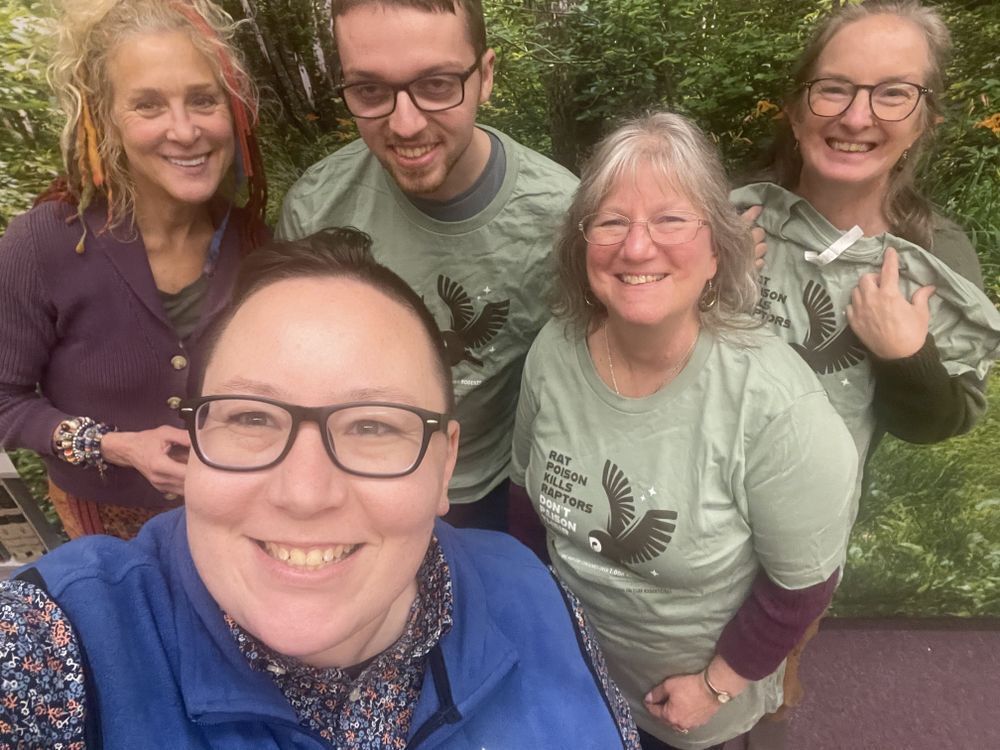-
Commonly used poisons called Anticoagulant Rodenticides are lethal pesticides used in an attempt to control rodent populations. Black box bait stations containing these rat poisons are placed alongside homes, hotels, grocery stores, daycare centers, and more.
Rodenticides are proven to have devastating consequences on the ecosystem, negatively impacting local wildlife populations like raptors, degrading water, soil and plant communities and reducing local and regional biodiversity.
Any bird, wildlife or pet that eats poisoned rodents accumulates rodenticides in their own bodies, often leading to death. Since raptors consume thousands of rodents a year, they are particularly susceptible to these impacts. Safer alternatives exist, and when used together are often more effective than simply relying on rodenticides.
-
Barred Owl by Jenny Zhao courtesy of Mass Audubon
Rhode Island’s wildlife rehabilitators agree that anticoagulant rodenticides impact many of the animals they treat. Watch a video of federally licensed wildlife rehabilitator Sheida Soleimani, who operates a clinic called Congress of the Birds, testify in 2024. Telling your story to the state legislators is a powerful way that you can help our efforts to ban rat poison and protect raptors.
Join Audubon in Protecting Raptors Against Rodenticides
State legislation to ban anticoagulant rodenticides could save thousands of raptors annually. In 2024, Audubon Society of Rhode Island made it a priority to advocate for the first-ever bill to ban the use and sale of rat poison in Rhode Island, and we continue to do so in 2025!
2025 Rhode Island Legislation:
House Bill 5704 | Senate Bill 651
Sign Our Petition to RI Legislators →
Subscribe to Receive Advocacy Alerts →
Upcoming Events




